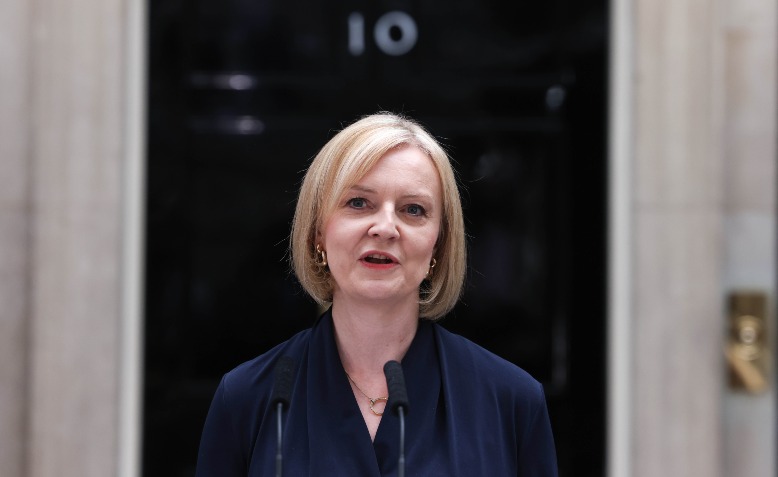 Liz Truss. Photo: Simon Dawson / No 10 Downing Street / CC BY-NC-ND 2.0, license linked below article
Liz Truss. Photo: Simon Dawson / No 10 Downing Street / CC BY-NC-ND 2.0, license linked below article
Terina Hine assesses Liz Truss’s half-baked energy plan designed to protect the profits of energy companies
On Thursday the new government will unveil its plans for dealing with the energy crisis. The intention is to freeze the energy price cap at roughly the current level, welcome news when the anticipated price hike this autumn would be unaffordable for most households. But rest assured, what we don’t pay for now, we will pay for later.
This is no handout. Or at least not to those who need it.
Truss’s energy plan has been eagerly awaited following a summer of government inaction and dire warnings about fuel costs over the winter ahead. The plan, although not confirmed, looks set to keep annual energy bills at or below the current level of £1,971. A level that is already far too high for many households, having risen by 50% since last year.
Energy bills in this country are higher than in many European countries, and will be on average be £700 more than last winter.
What we are witnessing is a spectacular example of market failure. The energy firms, some making excessive profit and handing out huge bosses bonuses, have failed to provide affordable energy so the government has to bail them out.
Rejecting nationalisation or a windfall tax, the price freeze will be funded by a government backed loan which we, the tax payer and consumer, will have to repay.
The plan will require a series of loans to the energy companies to be spread over the next 18 months, costing somewhere in the region of £130-£170 billion. Under the proposals, the existing pricing system would be scrapped and Ofgem sidelined. Instead ministers will set the price, to be reviewed quarterly. The aim: to appease voters about to be hit with unaffordable bills and crucially to protect the profits of the energy companies.
There will be no bonus cap and no cap on profits, just a tax payer funded price cap for a limited period. The government backed loans will enable energy companies to pay global energy prices while continuing to rake in profits and pay bonuses. In a couple of years, the consumer will pick up the cost of the loans, with 10-15 year debts forced onto all households. Loan repayments will be added onto energy bills, ‘affordable’ by then because global prices will have fallen.
And what if global prices fail to fall? Who knows, least of all Truss and her advisors.
Unsurprisingly, the chief executives of the energy companies were very receptive to the government’s plan.
This plan does nothing to dampen demand or encourage energy efficiency, and, as yet there is no help included for public services. How schools and hospitals will be able to pay for heating and energy remains a mystery.
The pound is near a 37-year low, and the energy crisis seems certain to still bankrupt many. There is no knowing how how high prices will go nor how long the energy crisis will last. But what we do know is that just as with the 2008 banking crisis, it is the consumer and tax payer who will be paying.
The new Prime Minister was welcomed on the steps of Downing Street by black clouds, hail, wind and pouring rain. A bin bag was placed over the lectern and microphone; the omen for the Truss premiership was not good.
There are only three weeks for Truss to make her mark before parliament goes into recess for the party conference season. Already there are rumblings – she faces a deeply divided parliamentary party, the majority of whom wanted Rishi Sunak to take up the baton from Johnson; and contrary to expectations her victory among Tory members was not an overwhelming one – Truss won with 57% of the vote, the lowest since members first got a vote in 1998. Her survival until 2024 is far from assured.
Truss’s half-baked policies and crisis management are likely to ensure the storm clouds that greeted her in Downing Street on Tuesday are the first of many. She is the third Tory prime minister in as many years. It’s up to us to make her the last.
Before you go
Counterfire is growing faster than ever before
We need to raise £20,000 as we are having to expand operations. We are moving to a bigger, better central office, upping our print run and distribution, buying a new printer, new computers and employing more staff.

